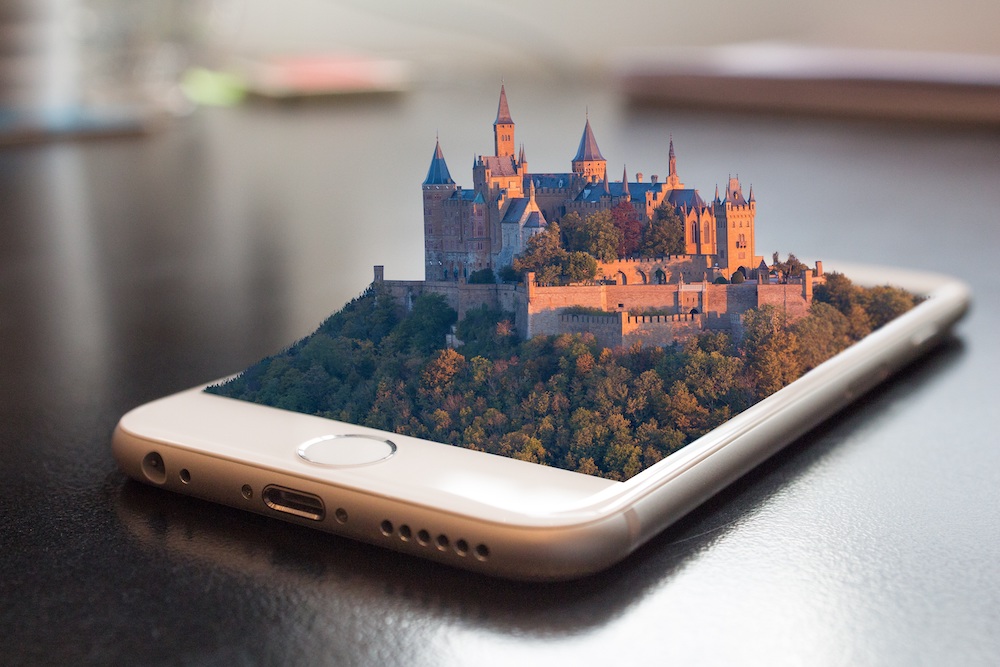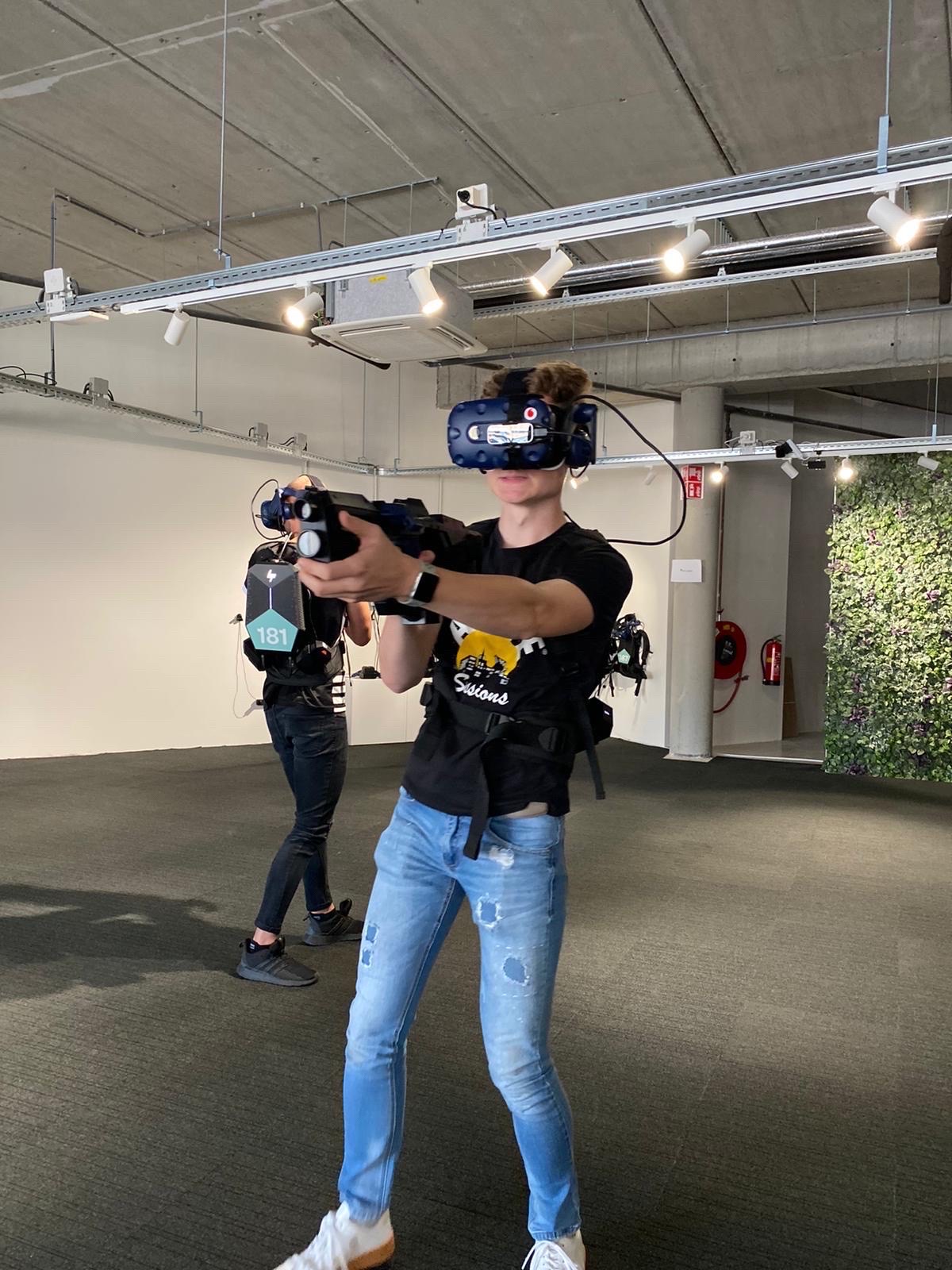New technology and disruptive developments in themed entertainment
From generative AI to mitigating staff shortage through new technologies

The field of themed entertainment is often regarded as one of the most innovative sectors in the field of leisure when it comes to new technologies. Not only does the content of themed entertainment heavily rely on new technologies that raise the bar of bringing fictional worlds to life (e.g. the highly advanced robotic figures that populate recent additions to various theme parks worldwide), also, new technologies are constantly being implemented to better facilitate guest experiences by taking hassles of all kinds and sorts away (e.g. mobile apps which can turn a smartphone into a theme park ticket, into a key to a hotel room and into a personalised recommendation system to avoid long queues). Recently, there have been two disruptive developments in society that challenge the themed entertainment industry to reconsider its use of technology in these domains: the rapid emergence of generative artificial intelligence (AI) applications and staffing shortage.
Bart Stadhouders and Wim Strijbosch are lecturers within the Attraction & Theme Parks Management track at Breda University of Applied Sciences.
The emergence of generative AI applications
Generative AI involves those types of AI applications that generate text, images or other media in response to prompts: carefully written tasks that the AI application is supposed to perform. Although generative AI applications have been emerging for quite some time already, there has been a recent increase in popularity of generative AI applications such as ChatGPT, DALL-E and Midjourney. The apparent quality of the output of these applications seems to be unprecedented. With rapidly growing user bases as a result, recently, a petition has even been signed by big names in the field of technology to call for a pause to the development of more powerful AI systems (Marr, 2023). Apparently, things went too fast to properly digest.
Realistic yet dystopian mood boards were generated in no time.
Recently (4-6 May 2023), the Themed Entertainment Association held its annual SATE Europe conference at the Europa-Park Resort in Germany. With "Revolution!” being the theme of the conference, it was no surprise that there were several talks about how themed entertainment could deal with generative AI. Fabien Manuel, creative development manager at Compagnie des Alpes, talked about the opportunities of generative AI by referring to the emergence of these applications as the industrial revolution of our times. He suggested that we can adapt to that. Backing up this claim, Geoff and Zoe Thatcher from Creative Principals and Yael Coifman from Leisure Development Partners strikingly demonstrated the use of AI in the blue sky phase of developing new themed entertainment products. In an interactive session, realistic yet dystopian mood boards were generated in no time by asking Midjourney to provide concept arts for a The Lord of the Rings merry-go-round, a The Fast & The Furious churro stand, and a The Godfather thrill ride. The speakers suggested that by making use of generative AI, the conceptualisation process in developing new products could be speeded up significantly, thus saving time and money and staying close to the working principles of spontaneous creative ideas.
At the same time, there were critical remarks about generative AI potentially making the creative process superficial. With everybody being able to easily generate visualisations, the field of theme park design with its own specific nuances, considerations and embedded knowledge could easily be disregarded. Additionally, concerns were raised with regard to intellectual property of AI-generated footage. In sum, while generative AI seems to provide a plethora of opportunities, riding the generative AI wave should also be done with caution.

Technological solutions to staffing shortage
Another development in the field of themed entertainment is that of staffing shortage, which was highlighted at the same SATE Europe conference by Margreet Papamichael from CLEAR Associates. Apart from the fact that new technologies can speed up operational processes, new technologies can also lower the demand for staff members by introducing automatisation into operational processes. For example, self-service facilities are popping up in many leisure locations. Recent examples include self-service turnstiles, such as the ones at Disneyland Paris. This could speed up the process at the entrance gates requiring less staff at the same time. Similarly, self-service checkout facilities have recently been introduced to Efteling’s flagship merchandise location. Another example is that of sticking QR codes to the tables of restaurants through which guests can not only order but also pay for their food, as has been conducted at Diergaarde Blijdorp’s Terraszaal restaurant.
New technologies can also lower the demand for staff members by introducing automatisation into operational processes.
Self-service checkout facilities have been familiar in the retail industry for quite some time now, yet themed entertainment seems to be relatively new to the club. Potentially, this might be related to self-service checkout facilities being related to shoplifting, as recently highlighted in the Dutch national media (Marshoek, 2023). As a result, retail stores have therefore even begun to remove self-service checkout facilities (e.g. the Action stores). Another argument which might be on the table is that in the guest journey of theme park visitors, employees still play a vital role in the overall guest experience (Ali, Kim, Li & Jeon, 2018). Employees can make or break the experience and can be the deciding factor in going from an ordinary guest experience to an extraordinary one, with the latter being the most impactful (Duerden et al., 2015). Especially with turnstile services, the entrance is a first and very important touchpoint where theme parks welcome their guests to their parks and set the tone for the remainder of the day. Recent research from Attractions & Theme Parks Management students at entrance areas of theme parks showed that parks want to have their visitors in as quickly as possible. All extra actions (scanning tickets, buying parking tickets, park maps, etc.) are therefore eliminated from entrance areas, but staff-guest interaction remains an important facet in steering the guest experience then and there.
Other important touchpoints in the guest journey where technological innovations could help out are the attractions and shows in the parks. Papamichael suggests, for example, to enhance ride vehicles with self-closing shoulder bars and checks, where no additional staff member is needed to visually check restraints. Mack Rides has already implemented such a system in their Tomorrowland: The Ride to Happiness coaster at Plopsaland De Panne. Yet, with safety being the number one priority in theme parks, outsourcing safety checks to technology alone is done with serious caution.
One of the last important points is the exit of the park, with endings being known to significantly impact how guests remember a leisure experience (see, for instance, Strijbosch et al., 2019). Here technology could also help to speed up the process of leaving the park, thus mitigating any hassles that might hamper a smooth exiting procedure. Think about license plate scanning instead of the traditional exiting gates, using light technology to guide people home safely and a separate pick-up point for the merchandise bought in the park. Yet again, it is the people that make the experience more impactful, so technology could help to speed up processes in themed entertainment, but you need good and motivated people who go the extra mile to make the experience a special one.
You need good and motivated people who go the extra mile to make the experience a special one.
Conclusion
In sum, new technologies could significantly help the field of themed entertainment. Generative AI could strongly speed up the conceptualisation process of new products for the themed entertainment industry, thus saving time and money and staying close to the working principles of spontaneous creative ideas. Various technologies can be used to solve the issue of staff shortage by offering automatised aspects of operational processes along the guest journey throughout themed entertainment venues. Yet, both uses of new technologies should he thoroughly considered with caution, as these new developments might take away from processes in both design and operations that in its current form are some of the core determinants of its success in providing excellent experiences.
Sources
- Ali, F., Kim, W. G., Li, J. & Jeon, H.-M. (2018). Make it delightful: Customers’ experience, satisfaction and loyalty in Malaysian theme parks. Journal of Destination Marketing & Management, 7, p. 1-11.
- Duerden, M. D., Lundberg, N. R., Ward, P., Taniguchi, S. T., Hill, B., Widmer, M. A., & Zabriskie, R. (2018). From ordinary to extraordinary: A framework of experience types. Journal of Leisure Research, 49(3-5), 196-216.
- Marr, B. (2023, May 3). Should we stop developing AI for the good of humanity? Forbes. https://www.forbes.com/sites/bernardmarr/2023/05/03/should-we-stop-developing-ai-for-the-good-of-humanity/?sh=1288be6d2943 Marshoek (2023). Benchmark Supermarkten 2022. Marshoek.
- Strijbosch, W., Mitas, O., Van Gisbergen, M., Doicaru, M., Gelissen, J. & Bastiaansen, M. (2019). From experience to memory: On the robustness of the peak-and-end rule for complex, heterogeneous experiences. Frontiers in Psychology, 10(1705), 1-12.




































































